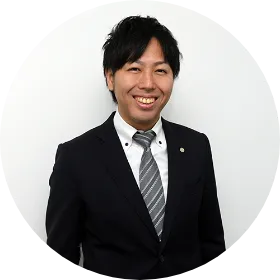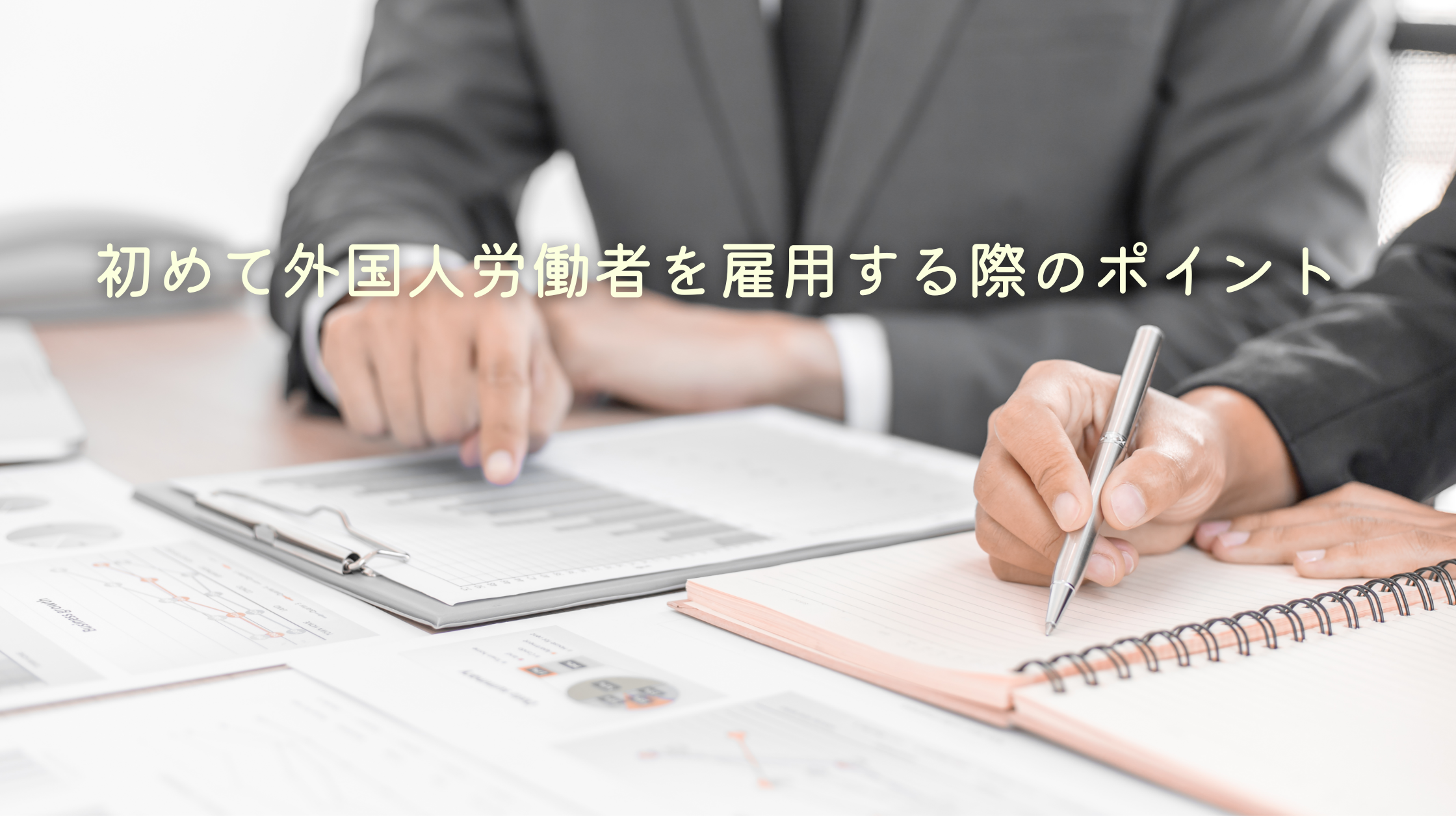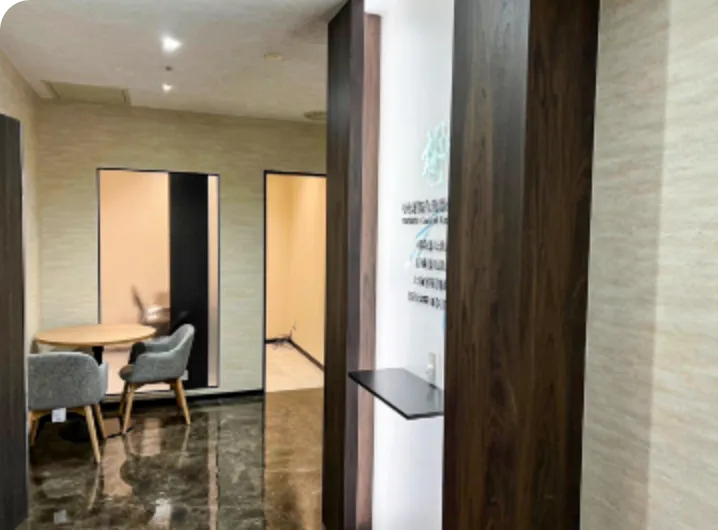Naturalization Application
Requirements for Simplified Naturalization
- 2024.06.14

“Simplified Naturalization” is a system that allows foreign nationals who meet certain conditions to apply for naturalization more easily than the normal naturalization process. In this blog, we will explain the different types of naturalization applications, their differences, and the requirements for Simplified Naturalization.
What is Simplified Naturalization?
Simplified Naturalization” is a special system under the Japanese Nationality Law that allows a foreign national to acquire Japanese citizenship under simpler conditions than the general naturalization process.
It applies to foreigners who meet certain conditions, and the domicile and other requirements can be relaxed compared to the general naturalization procedure.
*Not all requirements will be relaxed.
Types of naturalization
Article 4 through Article 10 of the Nationality Law classify naturalization into three categories: General Naturalization, Simplified Naturalization, and Grand Naturalization.
[1] General naturalization:
General naturalization procedure.
[2] Simplified naturalization:
The application for naturalization is subject to certain conditions, and some of the requirements for “general naturalization” may be relaxed.
[3] Grand Naturalization:
A naturalization application procedure in which all of the “General Naturalization” requirements are waived for foreigners who have made a special contribution to Japan.
Click here for a detailed explanation of the naturalization application process.
Let’s take a look at each type of naturalization in detail.
[1] General naturalization
General naturalization, as the name suggests, is an application for naturalization that meets all of the general requirements stipulated by the Nationality Law.
The specific requirements are as follows.
*In addition to the requirements stipulated in Article 5 of the Nationality Law, Japanese language proficiency (3rd grade level) is required.
|
Article 5 (1) The Minister of Justice may not permit naturalization for a foreign national who has not met the following conditions: (i) having continuously had a domicile in Japan for five years or more; (ii) being eighteen years of age or older and having the capacity to act independently according to the person’s national law; (iii) being a person of good conduct; (iv) being able to make a living through the person’s own assets or skills, or through those of the spouse or other relatives who share living expenses among them; (v) not having a nationality or having to give up the person’s nationality upon the acquisition of Japanese citizenship; and (vi) on or after the date on which the Constitution of Japan comes into effect, not having planned or advocated the destruction of the Constitution of Japan or the government established thereunder with force, and not having formed or joined a political party or other organization planning or advocating the same. |
[2] Simplified Naturalization
Simplified Naturalization is a system that allows an applicant to apply for naturalization without having to fulfill all the requirements of ordinary naturalization, such as the address, ability, and livelihood requirements of Article 5 of the Nationality Law, provided that certain conditions are met.
The relaxation of criteria is as follows.
|
Article 6 The Minister of Justice may permit naturalization for a foreign national currently having a domicile in Japan who falls under one of the following items even if that person has not met the conditions listed in the preceding Article, paragraph (1), item (i): (i) a child (excluding an adopted child) of a former Japanese citizen, who has continuously had a domicile or residence in Japan for three years or more; (ii) a person born in Japan and continuously having had a domicile or residence in Japan for three years or more or whose father or mother (excluding an adoptive parent) was born in Japan; (iii) a person who has a residence in Japan continuously for ten years or more. |
Most of those who qualify for this simplified naturalization are special permanent residents or foreigners married to Japanese nationals.
Let us breakdown the article to see which cases actually fall under the category of expedited naturalization and which requirements are relaxed.
<When the domicile requirement is relaxed>
(1) Children of former Japanese nationals
|
Article 6 (i) a child (excluding an adopted child) of a former Japanese citizen, who has continuously had a domicile or residence in Japan for three years or more; |
This applies to children of parents who are former Japanese nationals.
A former Japanese national is, for example, a Japanese national who has acquired the citizenship of a foreign country and, as principally Japan does not recognize dual citizenship, loses Japanese citizenship.
This applies to children of these former Japanese nationals (biological children only, adopted children are excluded) who wish to acquire Japanese nationality.
The residence requirement for ordinary naturalization, “continuously having a domicile in Japan for five years or more,” will be relaxed to “continuously having a domicile or residence in Japan for three years or more.”
*The difference between “domicile” and “residence”: A domicile is the home of one’s residence in Japan. On the other hand, a residence is a place where one stays continuously for a certain period, although it is not the main base of one’s life.
(2) The applicant or his/her parents were born in Japan
|
Article 6 (ii) a person born in Japan and continuously having had a domicile or residence in Japan for three years or more or whose father or mother (excluding an adoptive parent) was born in Japan; |
Even if you are a foreign national, if you were born in Japan, the residence requirement may be relaxed.
Also, even if you were born in Japan and once left Japan, if you returned to Japan and have lived there continuously for more than 3 years (originally more than 5 years), you will meet this residency requirement.
*The difference between “domicile” and “residence”: A domicile is the home of one’s residence in Japan. On the other hand, a residence is a place where one stays continuously for a certain period, although it is not the main base of one’s life.
However, the capacity requirement is not relaxed, so even if you were born in Japan and have had a “domicile” for more than 3 years, naturalization will not be granted unless you are at least 18 years old. In other words, even if you were born in Japan and have been in Japan when you are 3 years old, your naturalization will not be approved.
The term “born in Japan and whose father or mother was born in Japan” refers to third-generation Japanese Foreigners. Such persons will satisfy the residence requirement simply by having a domicile in Japan, even if they have not lived in Japan for more than three years.
(3) Those who have a residence in Japan
|
Article 6 (iii) a person who has a residence in Japan continuously for ten years or more. |
Those who have had a place of residence in Japan for 10 years or more will satisfy the residence requirement. In other words, “those who have continuously resided in Japan for 10 years or more” do not need to fulfill the requirement of ordinary naturalization, which is “to have continuously had a domicile in Japan for 5 years or more.
In many cases, foreign students and special permanent residents in Japan fall under this circumstance.
However, since only the domicile requirement is relaxed, there is a possibility that foreign students and special permanent residents whose income in Japan is only part-time and their life is unstable may not meet the livelihood requirement even if they have lived in Japan for 10 years or more, and thus may not be approved.
(*However, “assets of spouse or other relatives” can also be taken into consideration for the livelihood requirement.)
*The difference between “domicile” and “residence”: A domicile is the home of one’s residence in Japan. On the other hand, a residence is a place where one stays continuously for a certain period, although it is not the main base of one’s life.
<When the domicile and capacity requirements are relaxed>
(1) Spouses of Japanese nationals
|
Article 7 The Minister of Justice may permit the naturalization of a foreign national who is a spouse of a Japanese citizen and continuously has had a domicile or residence in Japan for three years or more and currently has a domicile in Japan even if that person does not meet the conditions of Article 5, paragraph (1), item (i) and item (ii). The same applies to a foreign national whose spouse is a Japanese citizen, three years have passed since the date of their marriage, and the foreign national has continuously maintained a domicile in Japan for one year or more. |
The point here is that it is not necessary to have been married to a Japanese national for at least 3 years.
In short, the applicable cases are as follows:
- A foreigner who has been in Japan for more than 3 years and married a Japanese national.
- A foreigner who has been married to a Japanese national for 3 years and has lived together in Japan continuously for more than 1 year.
<When the domicile, capacity, and livelihood requirements are relaxed>
Up to now, we have introduced the relaxation of the domicile requirement (relaxation of one requirement) and the domicile and capacity requirements (relaxation of two requirements), but, in fact, there are cases where the three requirements of domicile, capacity, and livelihood are further relaxed. That is when Article 8 of the Nationality Law applies.
|
Article 8 The Minister of Justice may permit the naturalization of a foreign national who falls under one of the following items even if that person has not met the conditions listed in Article 5, paragraph (1), item (i), item (ii), and item (iv): (i) a person who is a child (excluding an adopted child) of a Japanese citizen and has a domicile in Japan; (ii) a person who is an adopted child of a Japanese citizen, continuously has had a domicile in Japan for one year or more, and was a minor according to the person’s national law at the time of adoption; (iii) a person who has lost their Japanese citizenship (excluding a person who has lost their Japanese citizenship after naturalization to Japanese citizenship) and has a domicile in Japan; or (iv) a person who was born in Japan without any nationality and has continuously domiciled in Japan for three years or more since that time. |
Let us break down the article and explain.
(1) Children of Japanese nationals
|
Article 8 (i) a person who is a child (excluding an adopted child) of a Japanese citizen and has a domicile in Japan; |
As described above, this applies to cases where either the father or mother first naturalized as a Japanese citizen and then the child applies for naturalization, or where a Japanese child married to a foreigner begins to reside in Japan.
(2) Stepchildren (on the foreigner’s side)
|
Article 8 (ii) a person who is an adopted child of a Japanese citizen, continuously has had a domicile in Japan for one year or more, and was a minor according to the person’s national law at the time of adoption; |
A common case is when a stepchild of a foreigner who remarried to a Japanese national is adopted while the child is a minor with a Japanese national.
(3) Those who have lost Japanese nationality
|
Article 8 (iii) a person who has lost their Japanese citizenship (excluding a person who has lost their Japanese citizenship after naturalization to Japanese citizenship) and has a domicile in Japan; |
A “person who has lost Japanese nationality” refers, for example, to a native-born Japanese who has lost Japanese nationality as a result of marrying a foreigner and acquiring foreign nationality.
If such a former Japanese national again acquires Japanese nationality, the “address requirement,” “capacity requirement,” and “livelihood requirement” are no longer required.
However, in practice, in many cases, applications for naturalization are accepted after at least six months have elapsed since the applicant’s arrival in Japan.
*This does not apply to foreigners who have naturalized in Japan but have lost their Japanese citizenship.
(4) Stateless children born in Japan
|
Article 8 (iv) a person who was born in Japan without any nationality and has continuously domiciled in Japan for three years or more since that time. |
This applies to those who were born in Japan and have lived and maintained a domicile in Japan for 3 years or more while in a stateless status.
[3] What is Grand Naturalization?
Grand Naturalization, as mentioned above, applies to foreigners who have made a special contribution to Japan or have special circumstances in Japan, and acquire nationality in a manner different from the normal procedure.
|
Article 9 The Minister of Justice may obtain approval of the Diet and permit naturalization of a foreign national who has distinguished contributions to Japan, notwithstanding the provisions of Article 5, paragraph (1).
|
As you can see from the text of the article, even if the foreign national does not meet the naturalization requirements of Article 5 of the Nationality Law, the Minister of Justice, with the witness of the Diet, will be a special case in which the foreign national will be permitted to naturalize.
*There is no application form to apply for Grand Naturalization.
Differences between General Naturalization, Simplified Naturalization, and Grand Naturalization
The following chart shows the differences in the criteria for the three types of naturalization applications we have discussed so far.
|
Types of Naturalization |
Requirements |
|
General Naturalization |
(i) Domicile Requirement Continuously having a domicile in Japan for 5 years or more (ii) Capacity Requirement Over 18 years old and is considered of capacity under the home country’s law (iii) Behavior Requirement Be of good conduct and good behavior (iv) Livelihood Requirement Can maintain the livelihood using assets or skills of himself/herself, of his/her spouse, or other relatives (v) Requirement to prevent dual citizenship Have no nationality, or will lose the previous nationality once acquire Japanese nationality (vi) Requirement for compliance with the Constitution on or after the date on which the Constitution of Japan comes into effect, not having planned or advocated the destruction of the Constitution of Japan or the government established thereunder with force, and not having formed or joined a political party or other organization planning or advocating the same. (vii) Japanese Proficiency has the ability to read and write (about third-grader level) |
|
Simplified Naturalization |
I. Relax on (i) Domicile Requirement (relax 1 requirement) II. Relax on (i) Domicile Requirement + (ii) Capacity Requirement (relax 2 requirements) III. Relax on (i) Domicile Requirement + (ii) Capacity Requirement + (iv) Livelihood Requirement
Any of the above I, II, III
+
Meet other non-relaxed requirements |
|
Grand Naturalization |
Can be naturalized even not meet requirements in Article 5 |
Summary
What do you think?
In this article, we have explained about general naturalization, Simplified Naturalization, and Grand Naturalization.
As of 2024, there are still no actual cases of Greater Naturalization, and it would be unlikely to acquire Japanese citizenship through this method.
However, there may be many people who fall under the category of “Simplified Naturalization,” where a number (one to three) of requirements for naturalization application are eased.
If you have any questions about naturalization, please feel free to contact us!
We support such visa applications in a friendly, courteous, and speedy manner while carefully listening to the applicant’s situation and other details, and provide support with the peace of mind and satisfaction that only a specialist can provide.
For better solution of the applicant’s problem, we provide one-stop legal services in cooperation with not only administrative scriveners but also attorneys, judicial scriveners, and other professionals as a legal group, if necessary.
Please feel free to contact our office and consult with us first.
Please take advantage of our “free consultation” service, which allows you to consult with a specialist free of charge (limited to the first consultation) (click here to make an appointment for a free consultation).
We are Yanagi group, which have offices in Osaka (Abeno and Tennoji), and our affiliated offices in Tokyo (Shibuya and Ebisu) are also available for an on-site consultation. We have handled many applications for permanent residence permits, naturalization permits, work visas, college student visas, management visas, etc., as well as visa renewal procedures related to the status of residence with the Immigration Bureau (Immigration Bureau) as a one-stop service. Our experienced administrative scriveners are also available to help you with any problems you may have.
We also have staff members who can speak each of the native languages and can assist you in obtaining a visa.
※If you wish to be consulted in Nepali or Bengali, please inform us in advance via our website or social media, and the translator will contact you ahead of time.
Please feel free to contact us if you have any questions about your status of residence or visa, even if they are trivial.
Toll-free number: 0120-138-552
For English speakers: 080-9346-2991
For Chinese speakers: 090-8456-6196
Editor of this article

- Ryota Yanagimoto
- Administrative Scrivener/Judicial Scrivener
At the age of 24, he passed the national examinations for judicial scrivener, administrative scrivener, and wage service manager at the same time.
While working as a full-time lecturer at a major prep school, he independently opened a legal office related to judicial scriveners and administrative scriveners,
and he has experience as a judicial scrivener and an administrative scrivener for more than 15 years so far.
He has been actively contributing to various industries such as publicly listed companies, real estate companies, financial institutions, elderly care services, and professional organizations by conducting seminars, lectures, and talks.
And now he has a record of over 60 presentations so far.
Furthermore, as the president of a Japanese language school announced by the Ministry of Justice and Acts, and an advisor to a real estate company (capable of handling foreign clients),
he has been involved in various aspects of industries related to foreigners.
It is recommended to consult with experts when it comes to visas, naturalization, and residency matters.

Our office has specialized experts in visa and naturalization applications who are available to assist with free consultations (limited to the first session) and inquiries related to various visa applications and naturalization applications.
Additionally, we have foreign staff proficient in English, Chinese, and Korean languages with specialized knowledge, and they are present to provide support. They can accommodate consultations and inquiries in each language. Feel free to use our free consultation and inquiry services from here.

























 0120-138-552
0120-138-552 Free
Consultation
Free
Consultation Contact Us
Contact Us